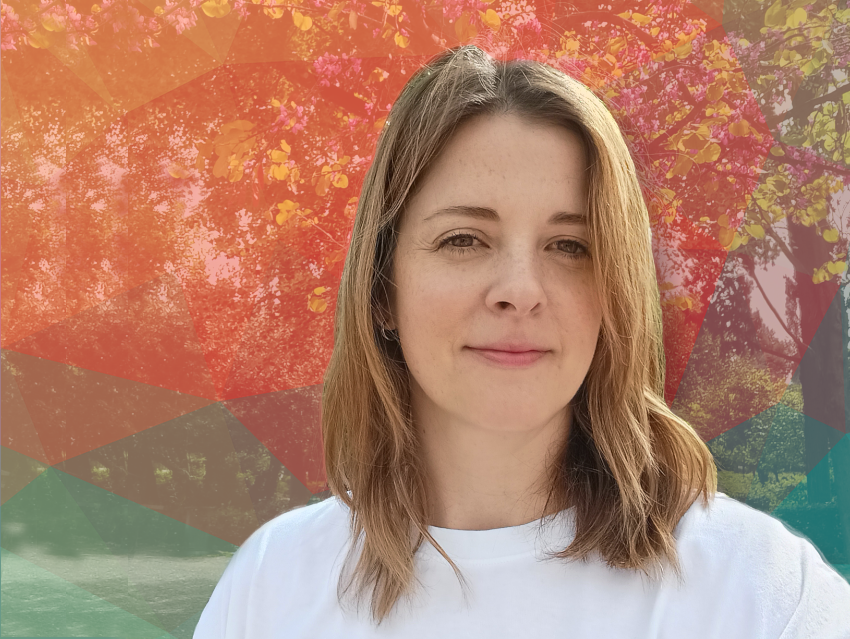Dr. Antonia Niedobitek is a consultant in research management for TÜV Rheinland Consulting GmbH (TRC), Cologne, Germany, which is part of TÜV Rheinland, a global testing service provider. Experts test technical systems and products, support innovations in technology and business, train people in numerous professions, and certify management systems according to international standards.
Here Antonia Niedobitek talks to Dr. Vera Koester, ChemistryViews, about her transition from academia to research management consulting that provides funding for research and innovation, and shares what brought her to this field after completing her Ph.D.
What do you do in your current position?
I work as a consultant in research management for TÜV Rheinland Consulting GmbH (TRC). TRC is appointed by the German federal ministries to consult them on the development of funding programs and handle the administrative work involved in the public funding of research and innovation.
In practical terms, my job involves reviewing and evaluating funding applications, change requests, and preliminary and final reports. I ensure that the funded projects are in line with the aims and regulations of the respective funding programs. A lot of my work also includes helping funding recipients with any queries regarding the paperwork at their end to receive the funding and to comply with the requirements and regulations.
The specific funding program I work for at the moment aims at protecting health and the climate by digitizing transportation systems.
What do you enjoy most about your job?
What I like most about my job on a daily basis is the collaborative and friendly work environment. Each project is handled by a team of two people, a technical and an administrative consultant. Each of them does their part of a task, for example, processing a funding application, and then we usually check in several times to discuss any issues or details as a team before finalizing the task. Each consultant works on multiple projects and in different teams of two at the same time, so you’re working in a large team. I enjoy that a lot.
Another thing I like overall is that working for governmental ministries and helping implement political programs in a very visible and immediate way gives a strong sense of purpose.
How much is your job related to biology? How does your background in biology contribute to the work you do in your position?
Apart from my affinity towards technology, it’s mainly “meta-skills” that contribute to my current job. Skills like analytical and strategic thinking, problem solving, understanding new projects, and learning new processes quickly are really valuable.
What other skills do you need?
Good communication skills are very important. Being able to communicate easily with a lot of different types of people such as colleagues and funding recipients is important.
What problems or decisions do you deal with regularly?
One of the challenges in this job is communicating with the funding recipients and having to deliver bad news sometimes, e.g., cuts to funding during the process of funding approval. But the applicants I’ve dealt with so far have been quite understanding, even though some of the funding they applied for didn’t go through. Luckily, these situations are rare.
Why did you decide to move from academia to this job?
The main reason why I moved from academia to this job was being involved in highly application-oriented projects with visible effects on society and climate protection. Academic research is fascinating, but it often felt very far away from application and industry to me.
At my current job, I also like the working conditions, such as a permanent contract, very varied work in changing small teams, and a more relaxed collaborative atmosphere due to less competitive pressure.
Is there anything you miss from your time in the lab?
This job is very different from my previous job in scientific research, but I can’t say I really miss anything so far. I do reminisce about the topics I worked on in biology and the hands-on work in the lab, but then I’m also reminded why I made the decision to leave academia.
What is most challenging part of your job?
The most challenging part about my current job was finding it. Reflecting on the experiences I had up to finishing my Ph.D. and finding out what really matters to me in a job was a long process. It’s not the most obvious way to get there from biology, and it was a process of finding out what was important to me, but also having the courage to do something completely new. I talked with former Ph.D. students in our group a lot, asked around in my network to find out what people were doing, and looked intensively at job ads to find out what criteria were important to me to be satisfied in the long term.
What advice would you give to students pursuing a job in this area?
I would recommend developing skills like communication and project management. In this job, you need to be good at communicating with many different types of people within the company as well as the funding recipients on the outside. Being well-organized and structured is also really important.
Did you need to specialize in a certain field or is a general science background sufficient?
The job requires a broad “bird’s eye view” of topics. Your specialization, e.g., after a master’s degree or Ph.D., is useful but you need to be able to grasp topics beyond your field of expertise. Being an all-rounder and being interested in higher contexts is an advantage.
Thank you very much for the interview.
Antonia Niedobitek studied biology and, after working as a research associate at the Unfallkrankenhaus Berlin and Auto Tissue Berlin GmbH, she completed her Ph.D. at the German Rheumatism Research Center in Berlin. Since 2023, she has been a consultant at TÜV Rheinland Consulting GmbH, Cologne, Germany.
She has been a freelance writer for ChemistryViews since 2014.
Also of Interest
All interviews in the ChemistryViews series Chemists Talk About Their Jobs





